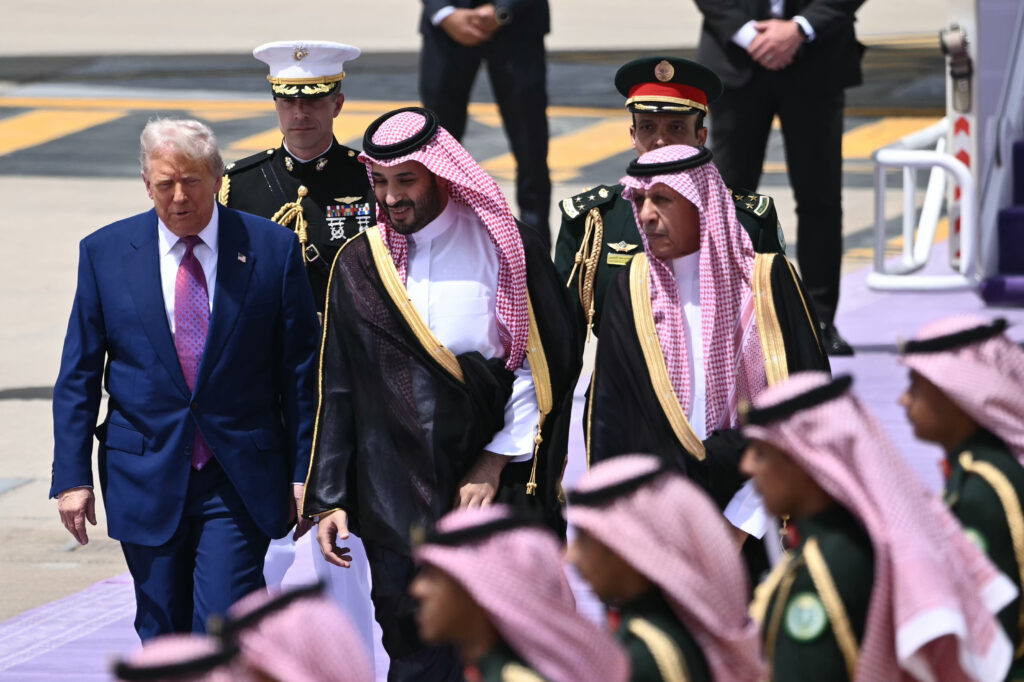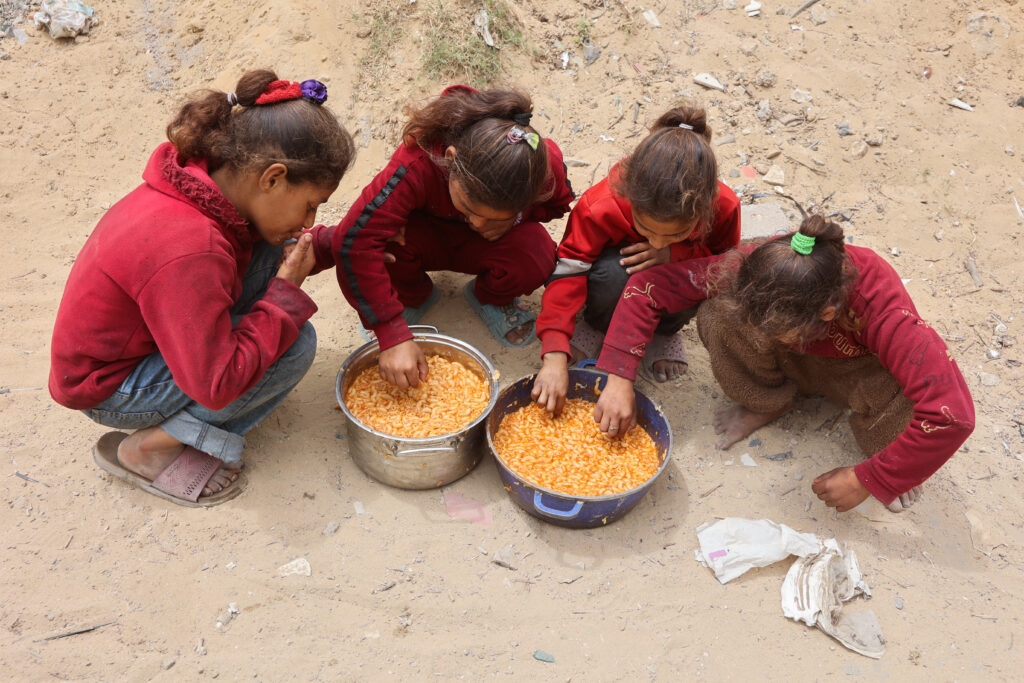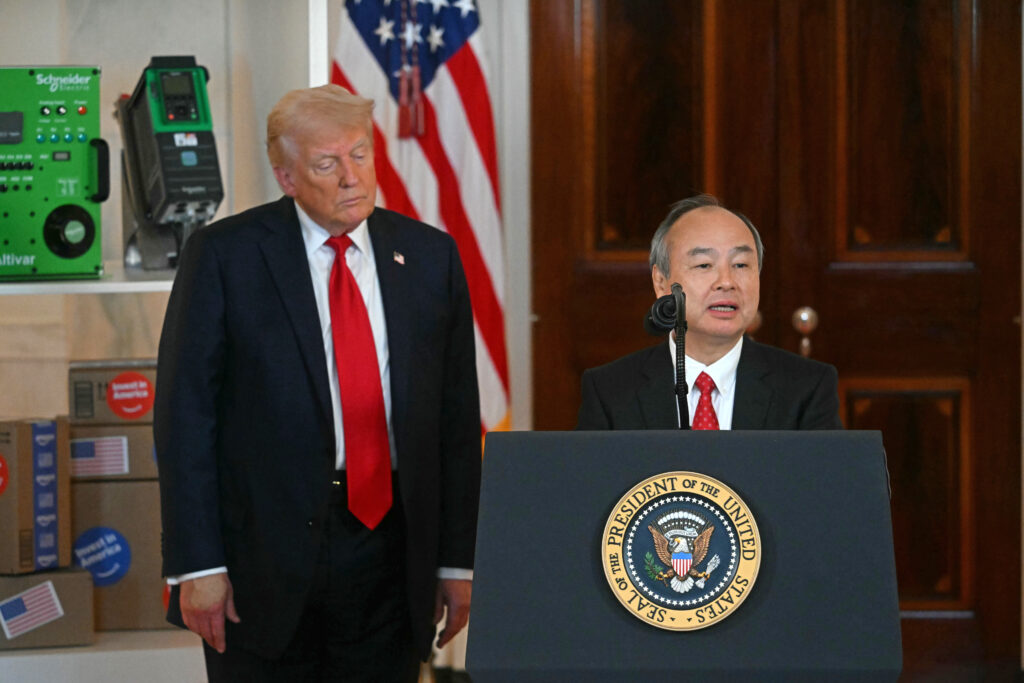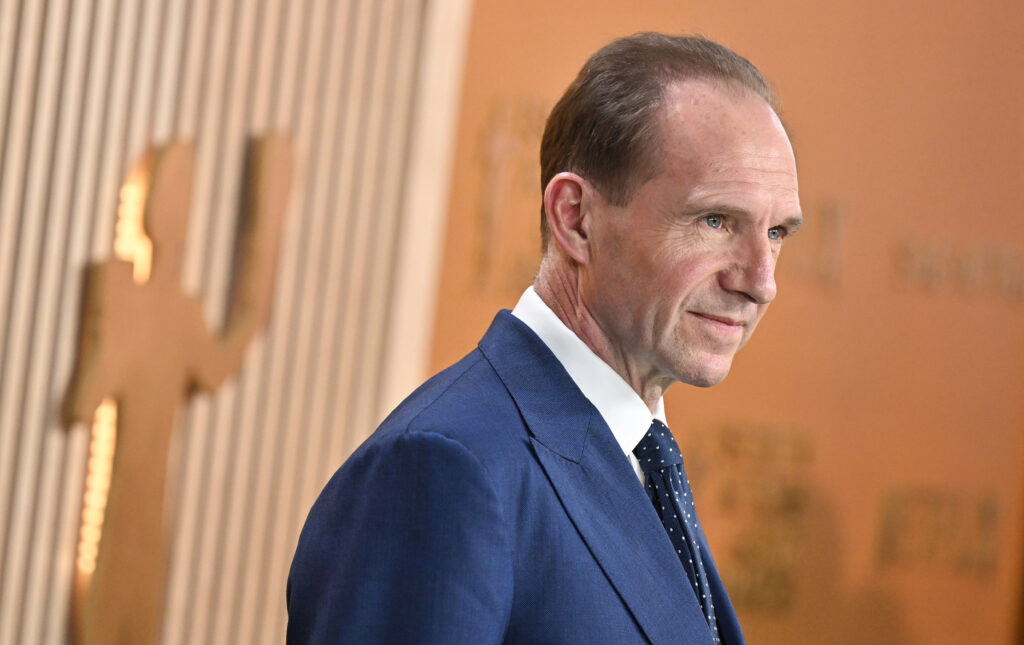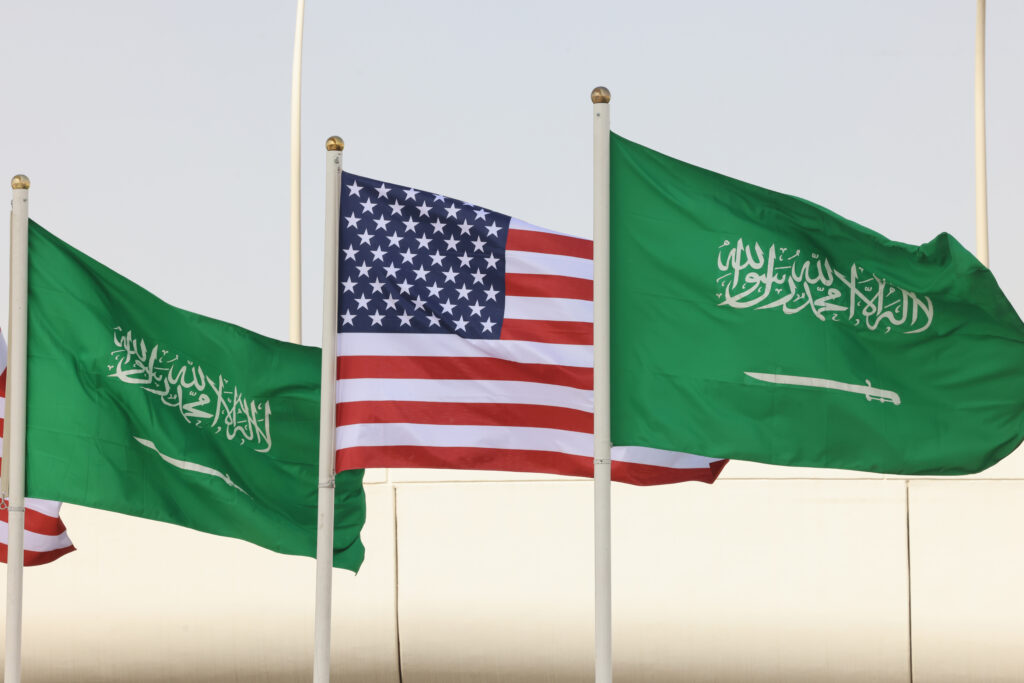Trump basks in Saudi welcome on business-focused state visit
Donald Trump enjoyed a lavish, royal welcome in Saudi Arabia on Tuesday on the first state visit of his second term, with the US president foremost focused on business deals at the start of a Gulf tour.Saudi Arabia escorted Air Force One with fighter jets before bringing out long-stretching honour guards both at the airport and a palace decked out with imposing chandeliers.With cameras rolling, a lengthy procession of Saudi royalty and business figures waited their turn to shake hands with Trump and Saudi Arabia’s de facto ruler, Crown Prince Mohammed bin Salman, who stood by his side.Trump brought along top members of his cabinet as well as US business figures including his adviser Elon Musk, the world’s richest person, who made a rare appearance in a suit as he chatted to the prince.Trump will address an investment forum in Riyadh and later in the week head to Qatar and the United Arab Emirates, fellow oil-rich Arab monarchies with long ties to the United States.In choosing the Gulf, the 78-year-old billionaire is again bypassing traditional first presidential stops in Western allies, some of which have been unnerved by his norms-shattering diplomacy.Eight years ago Trump also chose Saudi Arabia for his first overseas trip — when he memorably posed with a glowing orb and participated in a sword dance.Trump’s embrace of the Saudis contrasts with a more hesitant initial approach by former president Joe Biden, who had vowed to punish the crown prince after US intelligence found that he ordered the murder of Saudi dissident and US resident Jamal Khashoggi.Since Khashoggi’s gruesome 2018 killing, Saudi Arabia has worked aggressively to change its image, from easing restrictions on women to pursuing initiatives in new areas such as artificial intelligence.Saudi Arabia has also increasingly exercised diplomatic clout, serving as a venue for the United States to pursue talks with Ukraine and Russia.Qatar and the United Arab Emirates have also sought outsized international roles, with the Qataris serving as the go-between for US-brokered diplomacy between Israel and Hamas.- Trump’s ‘happy place’ -But the focus during the tour of the Gulf will likely be locking down business rather than diplomatic agreements.Jon Alterman, senior vice president at the Center for Strategic and International Studies, said that for Trump, the Gulf “is his happy place”.”His hosts will be generous and hospitable. They’ll be keen to make deals. They’ll flatter him and not criticise him. And they’ll treat his family members as past and future business partners,” he said.Saudi Arabia has pushed hard to be first on Trump’s diplomatic schedule, with de facto ruler Prince Mohammed vowing to pour $600 billion into US trade and investments.”I’ll be asking the crown prince, who’s a fantastic guy, to round it out to around one trillion. I think they’ll do that because we’ve been very good to them,” Trump said in response to the offer.According to a Saudi official close to the defence ministry, Riyadh will push for securing the latest US F-35 fighter jets along with state-of-the-art air defence systems worth billions of dollars.”We will condition that the deliveries take place during Trump’s term,” the source told AFP.- Navigating hotspots -Both Trump and Biden have been eager for Saudi Arabia to take the landmark step of recognising Israel.But Israel normalisation is not likely to feature high on the agenda on Trump’s trip, with Riyadh insisting a Palestinian state must be established before a deal can be brokered.Israel has cut off all food and other supplies to Gaza for more than two months as it pursues a new offensive against Hamas militants.The United States, which has quietly been frustrated with its ally, negotiated directly with Hamas to secure the release Monday of a hostage with US citizenship, Edan Alexander.Iran is also likely to feature prominently during the visit, following the Trump administration’s fourth round of talks in Oman at the weekend.Both sides have voiced hope but the United States on Monday imposed fresh sanctions targeting Iran’s suspect nuclear programme.Controversy is also swirling over Trump’s plans to accept a luxury Boeing jet from the Qatari royal family for use as Air Force One.Trump called the deal “a very public and transparent transaction” and said: “I would never be one to turn down that kind of an offer.”
